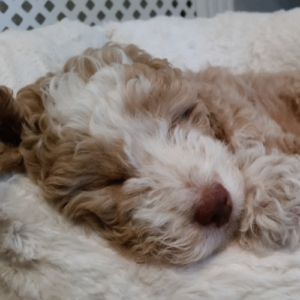05 Sep Bringing Your Puppy Home
 Bringing your puppy home for the first time is an exciting step in your journey together. Ensuring that you have prepared your home thoroughly and thought through how to manage the first few days, can help to make the transition as smooth and stress free as possible, both for you and your new addition.
Bringing your puppy home for the first time is an exciting step in your journey together. Ensuring that you have prepared your home thoroughly and thought through how to manage the first few days, can help to make the transition as smooth and stress free as possible, both for you and your new addition.
Before you collect your puppy:
- Check what the breeder will be giving you when you collect your puppy. Many breeders will give you a blanket or a toy which has been kept in the puppy pen. Having an item which has a familiar scent, or smell of their mother, can help a puppy feel more secure when they come home to a new environment.
- You should check whether the breeder will give you a small supply of puppy food, and what this will be. Even if you intend to change your puppy’s diet later, providing your puppy is healthy it is best to keep them on the food they are used to for at least a fortnight. Suddenly switching food can cause stress and an upset tummy. You must ensure your puppy has settled in well before implementing any change, which must be done very gradually. Please speak to your veterinary surgeon if you are concerned by your dog’s diet, feeding or stools.
Preparing the home:
- Think about where your puppy will spend most of his day. Is this area clear of anything you don’t want him to chew? Can he have constant access to water in this place? Will you be able to keep an eye on him throughout the day to aid toilet training? Is there space for him to sleep and play?
- Setting up strategically placed baby gates around the house can help to keep your puppy contained and away from areas which might not be puppy proof.
- Crate training provides your puppy with a cosy space where he feels safe and can rest undisturbed. The crate must be big enough for him to freely stand up and turn around. Not all dogs will accept being shut in a crate straight away; you will need to spend time teaching your puppy to enjoy his time in the crate. Filling it with a cosy bed, keeping his toys and feeding him meals inside the crate can help this process. If your puppy is happy to spend short periods of time in a crate/pen, it will aid the toilet training process, and ensure he can’t get up to mischief if you aren’t watching.
- Think about where you will keep the crate/bed in the house. It must be easily accessible to your puppy. It’s a good idea to position it in a place where you spend a lot of time, but away from the traffic of a busy household. That way when he spends time in the crate, he won’t be excluded but will have enough peace and quiet to relax and sleep. You also want to ensure you have easy access to the garden from this location, to aid with toilet training.
- Puppies need toys! It’s a good idea to have a range of toys made from different textures i.e. some soft toys, rope toys, rubber toys, chew toys etc. Your puppy must always have access to these toys to play with and chew on. Ensure all toys are size appropriate for your breed of puppy, and don’t have any small pieces that can be chewed off and swallowed.
- Consider purchasing a Snuggle Puppy, which helps your puppy for the first few nights when acclimatising to sleeping away from the litter. These include a heat pack and a pulsating ‘heart’ which mimics a heartbeat.
- Many puppies settle better with the assistance of the Adaptil range of pheromone products. Have a look at their website (https://www.adaptil.com/uk/) for the complete range.
The journey home:
- Ensure you have lots of towels as there’s chance your puppy will eliminate or vomit on the way home.
- Your puppy may go in a carrier, but our preference is for him to sit on the passenger seat on someone’s lap, so they feel more secure. If you are concerned about safety, then they may sit in the carrier (which is secured by the seat belt) or next to a passenger on the back seat or be on a car harness.
- If your puppy is travelling a fair distance you may need to stop for a toilet break. Don’t put your puppy on the ground but you may see if they will eliminate on a puppy pad in the boot of the car.
First few days home
- Don’t expect too much from your puppy in the first few days. They will sleep an awful lot and the most important thing is to encourage them to feel settled and get them used to a routine. Remember some puppies don’t even have any bladder awareness at eight weeks, so don’t get frustrated if you have accidents in the home for the first few days, this is perfectly normal.
- Socialisation is vital but do make sure your puppy has plenty of quiet time and opportunity to rest and sleep in the first few days.
- It is imperative your puppy experiences no stress in immediate days after coming home, so please shield from emotional harm, including very loud noises.
Daily routine:
- Looking after a puppy can feel like a full-time job! You will need to make sure he gets plenty of stimulation, as well as opportunities to interact and play throughout the day. He will also need a lot of sleep and it’s essential that he gets time out to rest. This can be tricky if you have children, they will need to learn to give the puppy space when required.
- If you go to work, consider whether your puppy will need someone to spend time with while you aren’t there. Whilst puppies do need to learn to be left home alone in your absence, the length of time will need to be introduced gradually. A puppy who is left home alone all day is likely to become bored and stressed. You will also need someone to let your puppy out in the garden for regular toilet breaks, until their bladder has developed, and they have become house trained.
Night-time routine:
- The first few nights can be a big adjustment for your puppy. Consider where you want your puppy to sleep. If it’s downstairs, you will need to consider sleeping downstairs near your puppy. While you should avoid having the puppy sleep on the bed with you, being close to their crate will be reassuring for the first few nights until they are settled into their new home.
- Try to keep your puppy awake for an hour before bedtime, to make sure he is adequately tired.
- Ensure he has been to the toilet as close to bedtime as possible. Some puppies may need to relieve themselves again in the night; you will need to be prepared to get up and let them out for a toilet break, until their bladder/bowels have developed enough to hold through the night.
Multi-pet households:
- If you have other pets in the house, you will need to carefully consider how you introduce them to your new arrival, to make it a positive experience for all.
- Existing pets may not always appreciate the arrival of a bouncy new puppy, so you must ensure they have a space to retreat and time away from the puppy if need be.
- You must always be around to supervise their interactions until both the puppy and the existing pet are settled and calm in each other’s company.


